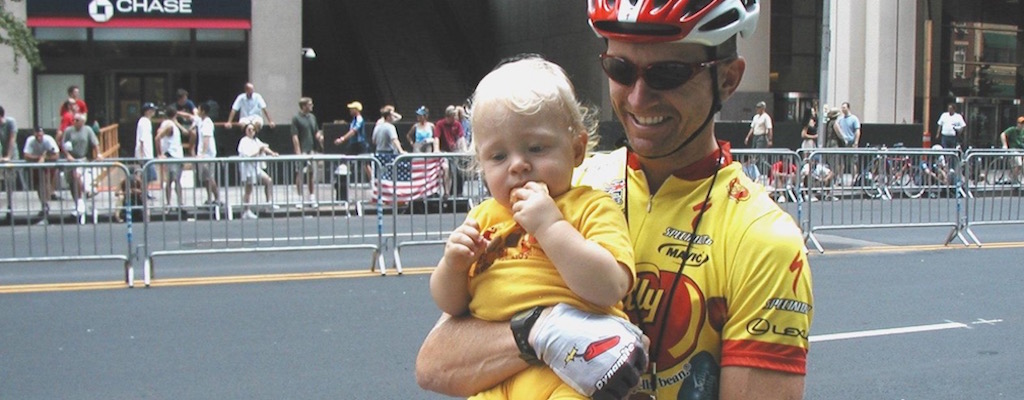T1D Cardiologist Balances Life with Marathon Running
Editor’s Note: Anne was a member of Beyond Type Run‘s 2017 TCS New York City Marathon Team sponsored by Medtronic Diabetes. Learn more about the 2019 Beyond Type Run team here.
Unique
Running a marathon would usually be an exceptional experience to write about however in this case I am one of a team of athletes with type 1 diabetes training for the 2017 TCS New York City Marathon. In addition to being one of Beyond Type Run, and one of thousands running NYC, I’m the cardiologist physician, wife, mother, daughter, sister, aunt—running my 10th marathon.
Type 1 diabetes and marathon running
I have managed type 1 diabetes (T1D) since February 6, 1989. Why was there even a first marathon?? It seemed like a challenge, and while I had never been speedy, I’ve always loved a challenge (this wasn’t a sprint). My first marathon was Columbus 1991, and I was using insulin shots, as I did in Columbus 1993, NYC 1993 and Boston 1994. I wore an early continuous glucose monitor (CGM) for the marathon, and blood sugars went down as Heartbreak Hill went up, from just over 11.1 mmol/L200 mg/dl at the start to 4.7 mmol/L84 mg/dl at the finish. For the Columbus 1995 (my personal best!), I changed to the Medtronic insulin pump and used the pump for Columbus 1998, Boston 1999, Boston 2000 and Philadelphia 2013.
I was rowing on the crew team in college when I was diagnosed with T1D. Doctors and nurses told me they had lots of collegiate athletes managing T1D, but I did not have a chance to meet any. The reality was there had been one varsity athlete on the men’s basketball team who had graduated the year before and was now playing in the NBA. Just knowing he had been successful (he was diagnosed with T1D at age 16) was powerful for me to persist and figure out how to keep rowing and competing, as well as running.
Work/life balance

Anyone with diabetes has to combine it with work/family/life. I ran the Columbus and Boston marathons in 1998/1999 during my internal medicine internship. That year I was either working, studying, or running. This was before house-staff work hour restrictions. But it was later than the time when residents used to literally reside at the hospital, so when not on call, I slept at home. Our schedule was a call every other night to every fourth or sixth night and consisted of working the full day, taking calls overnight and working the next full day. An internship and residency took a lot of hours and demanded focus, but gave me the opportunity to learn the course of a patient from presentation to management, and having the experience of continuity of patient care. During medical school and training it has been a challenge to learn all the complications and trajectory of a disease like T1D in the context of having it myself. I interviewed for a cardiology fellowship in Boston the week I was in town to run the 2000 Boston marathon.
Family
The gap in marathons from 2000-2013 was filled with medical training and starting our family. Our first son was born in 2001 as I completed internal medicine residency—I had pre-term labor and pre-eclampsia so he arrived early, at 29 weeks, spending seven weeks in the Neonatal Intensive Care Unit (NICU) at the hospital where I was a senior medicine resident.
Our second son arrived in 2004 just after I completed my cardiology fellowship —also pre-term, and also with me having pre-eclampsia (this time post-partum, who knew?). He, too, stayed at the NICU where his brother had been, so we knew many of the staff. Once in practice and busy with patient care and family/home life, I stopped running as regularly—thankfully my husband noticed/realized I am better when active.
Husband the athlete/coach/fan
My husband’s career has been in sports—racing bicycles professionally world-wide. We traveled to Italy together when he raced there for the month of May 1997 (I had a gap month during clinical training). Events that are hard to plan for include dropping the last bottle of insulin on the airport terminal floor in Rome when departing. The floor was marble, so the bottle smashed, tragically. Creative use of NPH got me home. He has met me at mile 23 on a number of marathons, or on course during a half marathon and continues to ride as well as train and coach cyclists. He will be in NYC for my support for the marathon.
Community running
My running group consists of neighbors who meet early to run, and who run marathons as well as half marathons, supporting each other along the way. When my sons were little they often sat in the baby jogger and accompanied me to meet the group if they had been up during the night or were up early. The run group would trade off taking turns pushing the jogger. Running is a way to manage stress, is excellent for the cardiovascular system, and while introducing variables to address with insulin therapy, in general helps me manage T1D. I have continued to run the CapCity Half Marathon and local half marathons, and now NYC on Nov 5.
Profession
Heart and vascular disease are the leading killer in our country; cardiovascular medicine has been both a challenging and rewarding specialty of my practice. I have brought my interest in sports to cardiology where I have been able to develop the OhioHealth Sports Cardiology program. I remain passionate about prevention—both primary and secondary prevention—for optimal heart and vascular health, and in particular women’s heart and vascular health.
A new kind of philanthropy
I’m thrilled to raise money for Beyond Type 1 to continue their mission for education, advocacy and work toward a T1D cure. It was awesome to see Chris Dudley on the Beyond Type 1 Instagram wall and be able to comment about how 28 years earlier just knowing he had competed as a varsity athlete and was the first player in the NBA with T1D, let me know my T1D would not stop me either.
Read more about the Beyond Type Run in the 2017 TCS New York City Marathon.
To learn more about the 2019 TCS New York City Marathon Beyond Type Run team click here.





